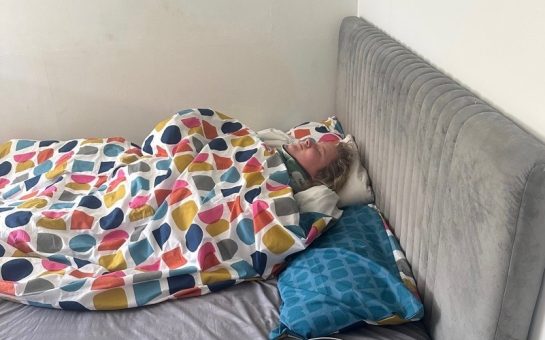The last few years have seen considerable increases in the diagnosis rates for autism and ADHD in adults – but what is it like to be neurodivergent in the workplace?
The National Institute for Health and Care Excellence stated in 2022 that around 3-4% of the adult population had ADHD.
Research by the Lancet in June last year found that there may be double the amount of undiagnosed autistic people in the UK than previously thought, an estimated 750,000 people over the age of 20.
As rates continue to rise among adults, with many being late-diagnosed, how do they navigate the workplace?
What is it like to be neurodivergent in the workplace?
Neurodivergent people may have different needs and ways of working in the office.
As autistic people have a particularly low employment rate, with fewer than 30% of autistic adults in employment according to 2023 data, supporting neurodivergent people in the workplace is especially important.
One of the ways that neurodivergent people can access support in the workplace is through the Access to Work scheme.
According to the GOV.UK site: “Access to Work is a publicly funded employment support programme that aims to help more disabled people start or stay in work.”
The programme can give employees a grant to help pay for things such as assistive software and special equipment, support workers, BSL interpreters, adaptations to vehicles used on commutes or reimbursements of costs of travelling to work where public transport can’t be used.
The grant can also be used to make physical changes to a person’s workplace.
In order to receive the grant, anyone who applies will have to go through an assessment process where the Department of Work and Pensions (DWP) will determine what kind of support they need and whether their needs can be met within their workplace’s own remit.
Samuel Manton, who works in higher education, has ADHD and accessed support both within his organisation and through Access to Work to meet his needs in the workplace.
At first it was confusing trying to discover what support was available for people with ADHD, which is protected under the 2010 Equality Act as a disability.
Manton said: “I think it’s partly that it’s unclear and a lot of managers across my workplace think you have to have an occupational health assessment to get reasonable adjustments, and you don’t always, especially if it’s something really simple like a wrist rest.”
Manton decided to go through the Access to Work scheme in order to purchase some equipment he needed for working.
After filling out a personal statement describing his support needs, Manton submitted his application and waited to hear back from someone.
Manton said: “I think I waited about three or four months before I heard from anyone, and at that point I was assigned a DWP caseworker and she asked me to have a meeting with her just to discuss my application.
“It was actually at that point, in the meeting where I had to make my case for why I need additional support.”
After the meeting, where he was told that he was granted access to the programme, Manton said the process moved fairly quickly.
Manton said: “Following that, the process was actually really quick as it’s passed over to external organisations who work on behalf of the DWP.
“They have service level agreements so once the DWP has referred you for an assessment, they have to do it within seven working days.”
Through this scheme Manton was able to purchase some different equipment through his employer that was then reimbursed by the DWP.
One of the main pieces of equipment that Manton had wanted to purchase was a pair of noise cancelling headphones to use in the office.
Speaking about the experience of working in hot-desking arrangements in open-plan offices as someone with ADHD, he said: “I don’t personally find that open plan offices suit my needs at all.
“There are so many people that I’m unconsciously tracking where they’re moving. I’m listening in on conversations.
“There’s so much just going on that is so exhausting, so overstimulating, and unless you’re a manager, you’re not given an office.
“Because we’re hot desking I’m not supposed to have a certain desk that I can sit at. I have equipment through Access to Work, so it’s my dedicated workspace, but that doesn’t mean other people respect that constantly.
“I’ll come back into the office and things will be moved even though it was specified to everyone that that was specifically for me and it’s next to the window which supports the issues I have with my vision.
“I don’t think it was taken into consideration that people like to have routines, we like to have structure. Having a space that you feel comfortable in when you’re at work is important, regardless of whether you’re neurodiverse or not.”
Clear, specific communication is often something that is key for neurodivergent people in the workplace.
When Manton started with a new team he found it a bit difficult to work in situations where tasks were communicated vaguely with no specific deadlines given.
Having an example of clear communication from one of his managers was really helpful.
Manton said: “She’s always like: ‘I need you to do this and I need you to do it by this timeline’.
“I need to communicate in this kind of tone and I’m just able to get on with it and I have no issues with my well-being because I know what I’m doing. I’m given clear instructions and so I feel quite supported because everything’s out in the open.”
At Manton’s place of work, a neurodiversity network has been built over the years.
The members, working across the organisation in a variety of different departments, all meet monthly to share their experiences and support each other to navigate life in the workplace as a neurodiverse community.
Manton said: “I really enjoy having other people that are also neurodiverse at work that I can just chat with and share my experiences with and see how they match up, what their experiences are.
“Saying I really struggle with this noise there and see if they’ve got any recommendations. It’s good to have other people there that get it and that can provide that kind of peer support.”
Manton also noted how having this community at work is really important for information sharing and being alerted to support that they can or can’t access by finding out what other people in the network have been through.
Reflecting on what workplaces could do to better support neurodiverse people, Manton said: “I personally have some issues with words like ‘reasonable adjustment’. Yes, I have needs. But why does that have to be an adjustment? Why can’t that just be seen as part of who I am in the workplace and part of what I need?”
For Manton, it’s the culture that holds the most power in transforming somewhere into an inclusive place to work.
He said: “It would be a better experience if everyone’s checked in with, every one-to-one with your line manager being like, are your needs being met in the workplace?
“Do you need to work from home more for the next week to cope with what’s going on in your personal life? Are your screens okay?
“If we just check in with each other, see how we’re doing and if we’re not okay, we provide that support.
“At the moment it’s always an extra step and for me it feels like that’s one of the biggest things that needs to be changed, that it’s not an additional burden that has to be accommodated for specific people.
“That we just generally we check up on each other and reasonable adjustments are integrated into the working processes.
“If you want to be truly inclusive and support everyone in the workplace, it needs to just be a standard part of the working environment that that’s checked up on.”
Featured image: Israel Andrade on Unsplash





